- Home
- slideshows
- miscellaneous
- The $1,000 smartphone showdown: Samsung's new Galaxy Note 9 vs. Apple's iPhone X
The $1,000 smartphone showdown: Samsung's new Galaxy Note 9 vs. Apple's iPhone X
Both have ultra-premium designs and are covered in glass: This one's up to you.

The Galaxy Note 9 has a larger and better screen.
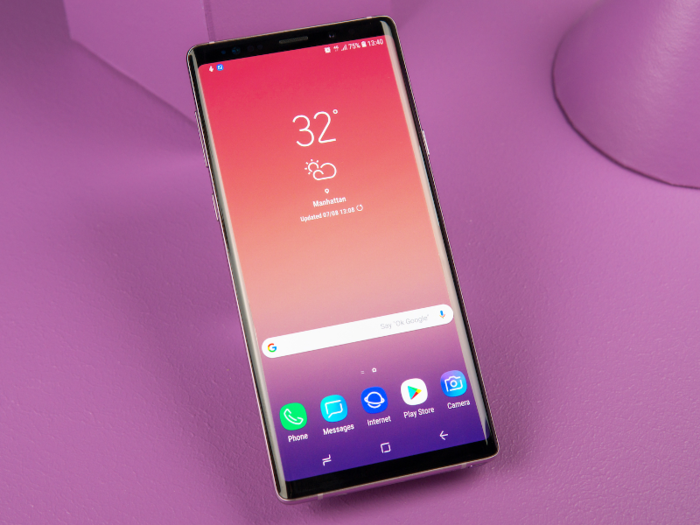
The Galaxy Note 9's massive 6.4-inch screen dwarfs the iPhone X's 5.8-inch screen.
Samsung also has the best displays in the smartphone business. Even though both phones share a similar type of OLED display, the Galaxy Note 9's display is just stunning. It's also slightly sharper than the iPhone X's display at around 516 pixels per inch versus the iPhone's 458 pixels per inch. But considering the size difference between the two phones' displays, the extra sharpness on the Galaxy Note 9 won't be significantly noticeable.
The iPhone X comes out on top of benchmark tests, but it's unlikely to be noticeable in real-life usage.
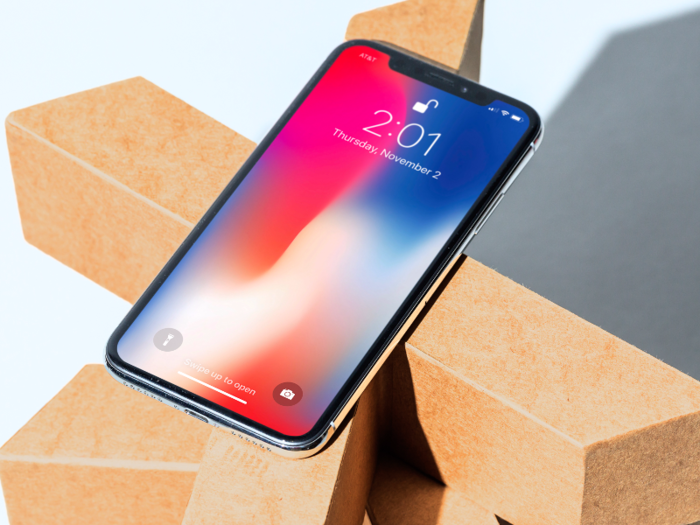
The Galaxy Note 9's Snapdragon 845 processor and 6GB of RAM was tested against the iPhone X's A11 chip and 3GB of RAM by Tom's Guide, and the iPhone X beat the Galaxy Note 9 in most benchmarks.
However, benchmarks aren't really a true representative of smartphone performance in day-to-day usage, especially considering the differing operating systems and apps that are developed for each ecosystem.
Basing my expectations on other phones that run the Snapdragon 845 chip like the OnePlus 6 and Galaxy S9, I highly doubt that the Galaxy Note 9 will be significantly slower than the iPhone X in running apps and games in regular usage.
The Galaxy Note 9 has a significantly bigger battery that should last longer than the iPhone X.
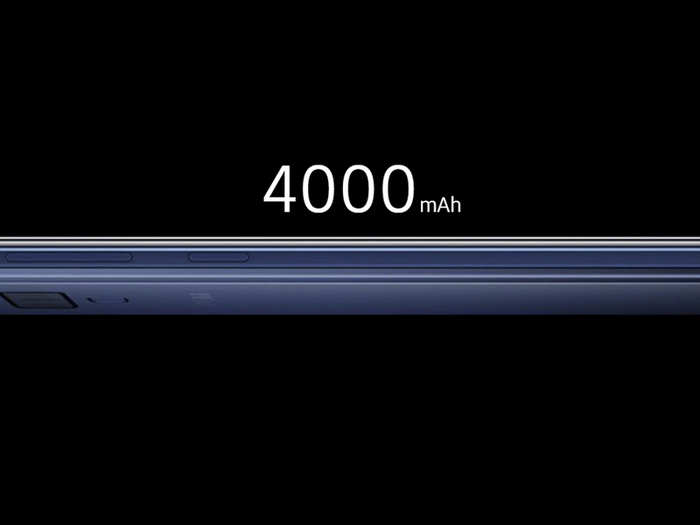
The Galaxy Note 9 has a whopping 4,000mAh battery while the iPhone X has a comparatively measly 2,716mAh battery.
Like benchmarks, however, a battery's capacity doesn't reveal everything about a phone's battery life because of the differing operating systems and the way they manage power. Still, I'd expect the Galaxy Note 9 to outlast the iPhone X with such a large battery. I'll be able to get a better idea once I use the Galaxy Note 9 for a few weeks.
The Galaxy Note 9 comes with a headphone port.
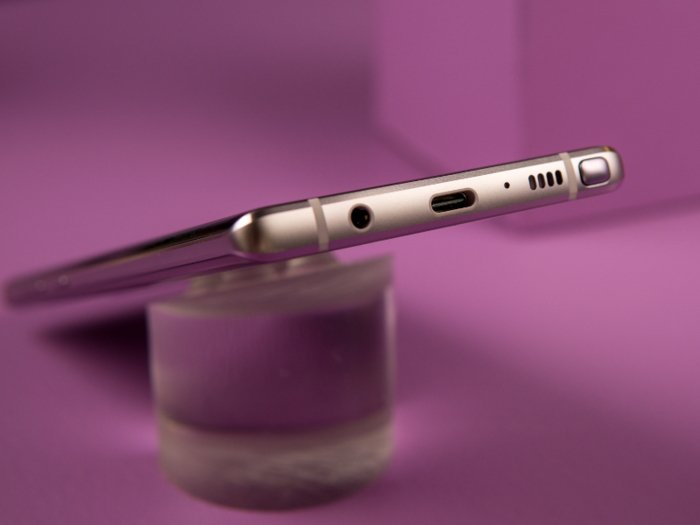
No dongles are required with the Galaxy Note 9. If you have wired headphones, you have the option to plug them into the Galaxy Note 9 and its headphone port. Meanwhile, the iPhone X costs the same as the Galaxy Note 9 and doesn't give you that option.
You can always use the included dongle with the iPhone X, but it's easy to lose or forget it, and it'll cost you $9 to buy a new one. Plus, you can't charge the iPhone X while using the dongle to listen to music with wired headphones.
Both smartphones support wireless charging.
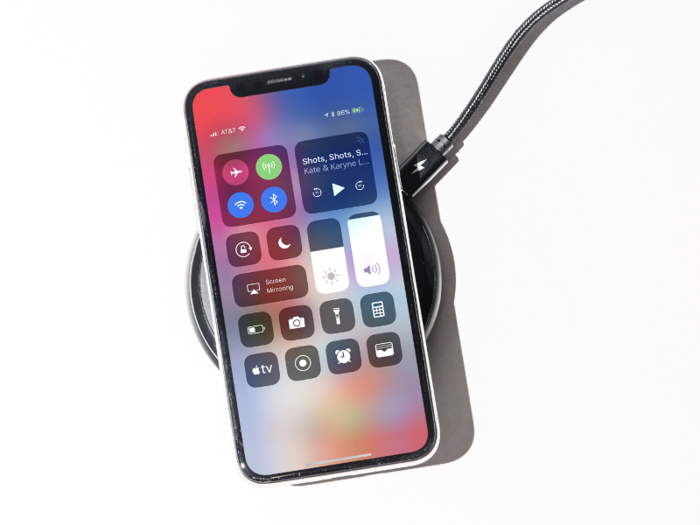
Both phones can charge wirelessly with wireless charging pads, but you have to buy wireless charging pads separately on both devices.
Both phones are water resistant, with the Galaxy Note 9 boasting a little extra resistance.
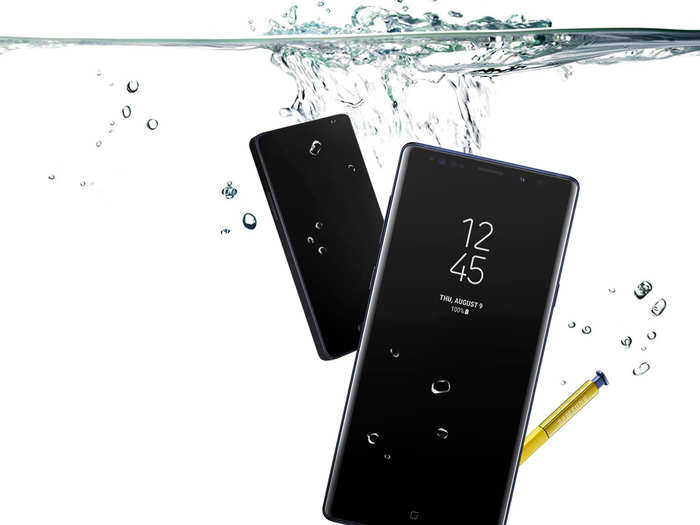
Accidental drops in water won't be a problem on either the Galaxy Note 9 or iPhone X. But the Galaxy Note 9's IP68 water resistance is rated to withstand a slightly deeper 1.5-meter depth compared to the iPhone X's 1-meter depth IP67 rating.
The Galaxy Note 9's S Pen is a nice extra if you want to use it.
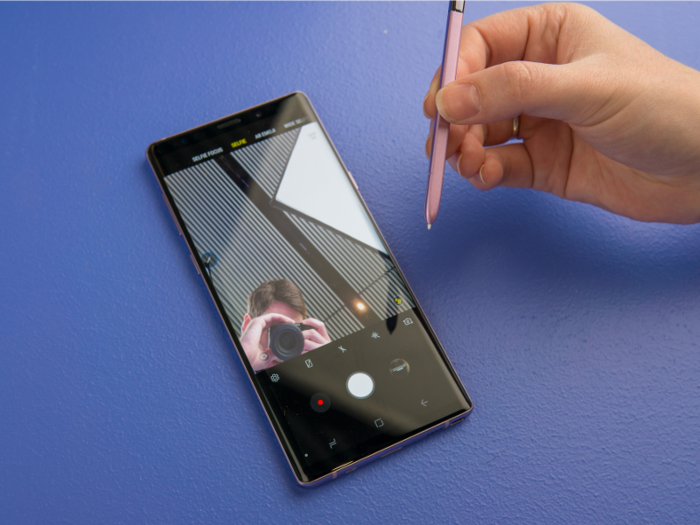
You have the option of using the Galaxy Note 9's S Pen stylus that some people swear by for taking notes. Samsung also gave the S Pen the ability to control the Galaxy Note 9's camera remotely, which isn't something you can do with the iPhone X out of the box without buying extra accessories.
Samsung added some extra smarts to the Galaxy Note 9's camera
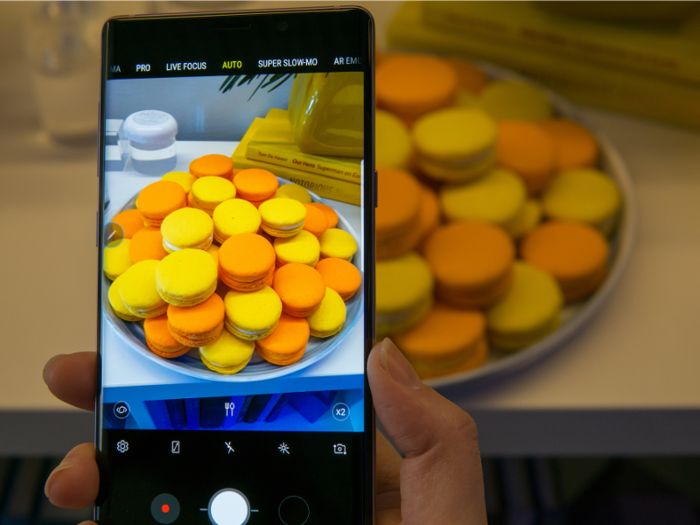
The iPhone X takes great photos, but Samsung added a new feature that lets the camera identify what you're shooting and adjust the camera settings for the best shot. We'll have to spend more time with the Galaxy Note 9's camera to see if it improves photos.
Samsung also added some extra camera features that will tell you if a photos is "flawed" like a person blinking, motion blur, if it's overly dark from too much light in the background, or blurry because of a smudged camera lens after taking a shot, and lets you quickly retake a photo.
Samsung's smartphone cameras since the Galaxy S9 also have an adjustable aperture that allows much more light to hit the camera sensor in low-light situations. As a result, the Galaxy Note 9 takes much better low-light shots than the iPhone X.
The base Galaxy Note 9 comes with twice the storage as the base iPhone X.

At $1,000, you get 128GB of storage on the Galaxy Note 9, and 64GB of storage for the iPhone X. The Galaxy Note 9 also lets you add a ton storage with a microSD card, while the iPhone X has no such option.
The iPhone X runs on the latest version of iOS, and the Galaxy Note 9 runs on an older version of Android.
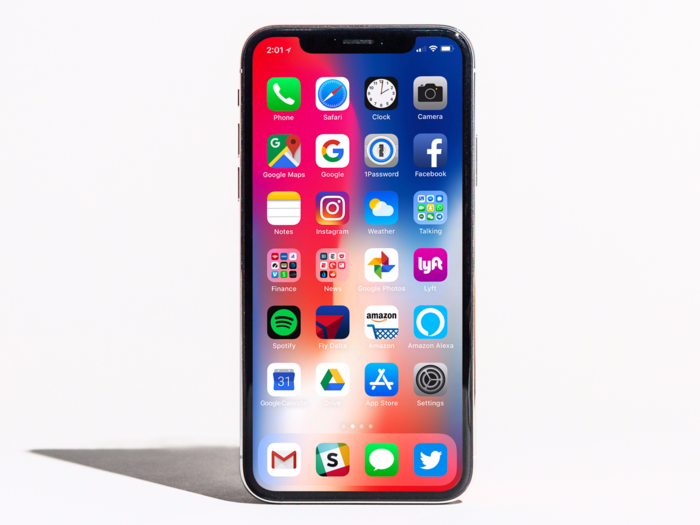
Surprisingly, the Galaxy Note 9 runs on Android 8.1 Oreo, despite the fact that Android 9 Pie was released just a few days before Samsung's announcement. It's unclear when or if the Galaxy Note 9 will get the Android 9 update.
Meanwhile, the iPhone X runs on the latest version of iOS, and it'll get future versions of iOS the day they're released.
The Galaxy Note 9 comes with a fingerprint scanner as well as facial recognition.
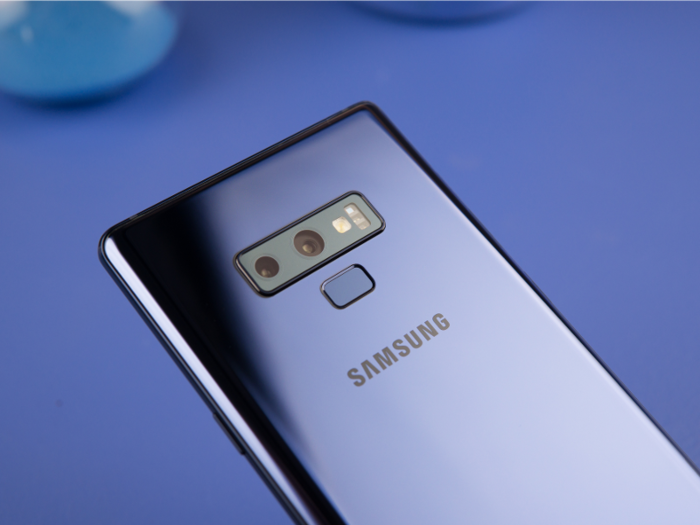
One of my least favorite things about the iPhone X is that you're entirely dependent on Face ID to unlock the phone. There's no fingerprint scanner to fall back on.
When Face ID doesn't work properly, you have to type in your PIN or code. I've never had to unlock a phone with my PIN as often as I have with the iPhone X because Face ID just doesn't work well with me. And when it does work, I find it slower than the iPhone 8's fingerprint scanner.
The Galaxy Note 9 has facial recognition, but I still have to test its accuracy and unlocking speed. Still, even if the Galaxy Note 9's facial recognition isn't great, I can still resort to the reliable fingerprint sensor instead of using my PIN to unlock the phone.
Overall, you're getting more with the Galaxy Note 9 than the iPhone X for the $1,000 price tag.

With Samsung's Galaxy Note 9, you're getting more features than you get with the iPhone X. For the iPhone, you're seemingly paying for iOS and the Apple ecosystem that integrates several Apple devices, which no other smartphone company has managed to match.
Popular Right Now
Popular Keywords
Advertisement